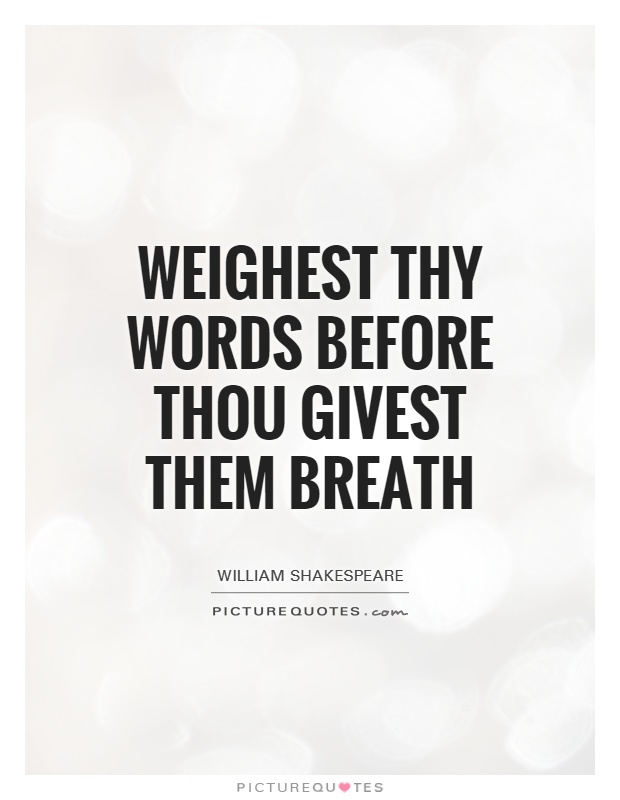Weighest thy words before thou givest them breath

Weighest thy words before thou givest them breath
William Shakespeare, often regarded as one of the greatest playwrights in history, was a master of language and words. His plays and sonnets are filled with profound wisdom, wit, and insight into the human condition. One of the recurring themes in Shakespeare's works is the power of words and the importance of choosing them carefully. In many of his plays, characters are often undone by their own words, whether through deceit, betrayal, or rashness.One of the most famous quotes from Shakespeare that speaks to the importance of weighing one's words carefully is "Weigh thy words before thou givest them breath." This line, spoken by the character Polonius in Hamlet, serves as a reminder to think before speaking and to consider the consequences of one's words. Polonius, a counselor to the king, offers this advice to his son Laertes as he prepares to embark on a journey. The message is clear: words have power, and it is important to use them wisely.
Throughout his works, Shakespeare explores the ways in which words can be used to deceive, manipulate, or inspire. Characters like Iago in Othello or Lady Macbeth in Macbeth use their words to manipulate others and further their own agendas. In contrast, characters like Portia in The Merchant of Venice or Juliet in Romeo and Juliet use their words to express their love, loyalty, and courage.
Shakespeare also delves into the idea of the power of language to shape reality. In The Tempest, the character Prospero is able to control the world around him through his mastery of language and magic. Through his words, he is able to create storms, summon spirits, and ultimately bring about reconciliation and forgiveness.












 Friendship Quotes
Friendship Quotes Love Quotes
Love Quotes Life Quotes
Life Quotes Funny Quotes
Funny Quotes Motivational Quotes
Motivational Quotes Inspirational Quotes
Inspirational Quotes